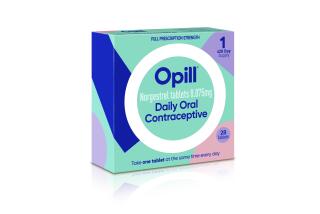FDA Considers Tightening Rules for Use of Antibiotics on Farm Animals
- Share via
WASHINGTON — Tackling the touchy topic of antibiotic use in agriculture, regulators said Tuesday that they want to impose new restrictions to combat concerns that on-the-farm medication is creating drug-resistant germs that could wind up in the food supply.
Advisors to the Food and Drug Administration acknowledged that the proposed rules need fine-tuning, but they added that most should go into effect.
Makers of animal drugs, meanwhile, protested that the agency is drastically overreacting.
Among other things, the rules would set preestablished terms for when an animal antibiotic has shown signs of enough drug resistance that its use should be curbed or banned.
“It’s an issue that won’t go away and can no longer be ignored,” said Keith Sterner, an Ionia, Mich., veterinarian who is chairman of the advisory panel.
Antibiotics are losing their power against numerous germs, which get a chance to mutate into untreatable strains each time they encounter the drugs. Most to blame are humans: doctors who overprescribe antibiotics and patients who take them improperly.
Many scientists say antibiotics on the farm are forcing food-borne germs to start mutating. Among the evidence: Chicken sold in Minnesota was contaminated with Campylobacter bacteria that was resistant to one powerful antibiotic.
A two-day meeting to deliberate the FDA’s proposals highlighted how bitter a controversy the issue is.
On one side, public health experts say on-the-farm drugs are worsening the already dire problem of antibiotics’ losing their power to combat infection. On the other side, makers of drugs for animals deny that the products pose any serious risk to consumers, noting that no one has died from eating meat tainted with untreatable germs.
Critics “never stood at the bedside of a critically ill patient . . . hoping the antibiotics will work and having to deal with the consequences when they don’t,” said Dr. David Bell of the Centers for Disease Control and Prevention. He urged the industry to find a compromise that protects consumers while still giving farmers drugs vital for animal health.
But drug makers opposed many of the FDA’s plans, saying the rules would make it too difficult--and expensive--to create new antibiotics for animals. They said the government instead should study whether on-the-farm antibiotics really pose an imminent threat and educate farmers and veterinarians in the prudent use of the drugs.
“We believe the agency is overreacting,” said Brendan Fox, president of Elanco Animal Health, a division of Eli Lilly & Co.
The agency will decide which rules to adopt after a public comment period ends in April.
More to Read
Sign up for Essential California
The most important California stories and recommendations in your inbox every morning.
You may occasionally receive promotional content from the Los Angeles Times.













